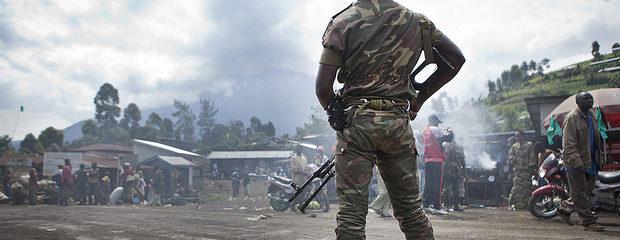What if Ocampo Indicts Bashir? 4
It seems to me that this debate harkens back to the familiar struggle between activists and analysts.
Not just re Darfur, but for more than two decades we have witnessed a systematic campaign of demonizing “Sudan”. Arguments presented re the North-South conflict were conflated with the introduction of Shari’ah law by then President Numayri, with liberties taken concerning the chronology of the rebellions and responses.
Conveniently for some, allegations of government support for “slavery” were added based on phony evidence, since revealed, but the damage to Sudan’s reputation was done, at least in certain Western countries.
Now we hear about “fearmongering” attributed to Khartoum or at least the NCP. Where is the evidence as compared to the allegations? Why can’t the activists understand that reconciliation always requires, first of all, bringing all parties to the conflict to the negotiation table, and then work out a step-by-step resolution which will fully please no one, but enable all parties to claim a partial victory?
I would like to see “justice” done, in principle all over the world; but I remain sceptical that the ICC will be able to summon the perpetrators of war in Iraq, DR Congo, etc., etc. However, I am much more concerned with saving lives and resolving conflicts in a pragmatic fashion.
Professor de Waal is familiar with the hundred or so tribes of Darfur, with the long-running civil war in Chad and its spill-over into Darfur (not the other way round), with religious and ethnic identities; yet far too many begin their approach with a conclusion, e.g. “Khartoum is bad”–now Bashir, previously Sadiq, Numayri–and many years later, have failed to advance conflict resolution even one bit. Need we remind them that we are not yet dealing with consensual political cultures as in most of Europe and the Americas but with conflicts of sub-national identities?
Peter Bechtold is an Adjunct Scholar at the Middle Eastern Institute.






Dr Peter Bechtold (like Alex de Waal) did not discover Darfur now . He has visited Sudan and written about it many years before the crisis began and.crucially, before Save Darfur Coalition started to recruit academics, film stars and celebrities in its Anti-Sudanism .It is not surprising that L. Ocampo finds the courage to declare a faoled plot to hijack an aeroplane. Anything goes as far as Sudan is concerned. What is being targeted is not a goverrnment. Writing in the Wall Street Journal ,a rebel leader from Darfur whose movement has an office in TelAviv declared that the aim is to sever Sudan’s links with both the Arab and Muslim worlds .The stakes are that high and the demonisation of Sudan (of which the ICC is a calculated factor)finds in Darfur rebels very useful pawns .
Khalid Mubarak is press counselor at the Sudan Embassy in London.